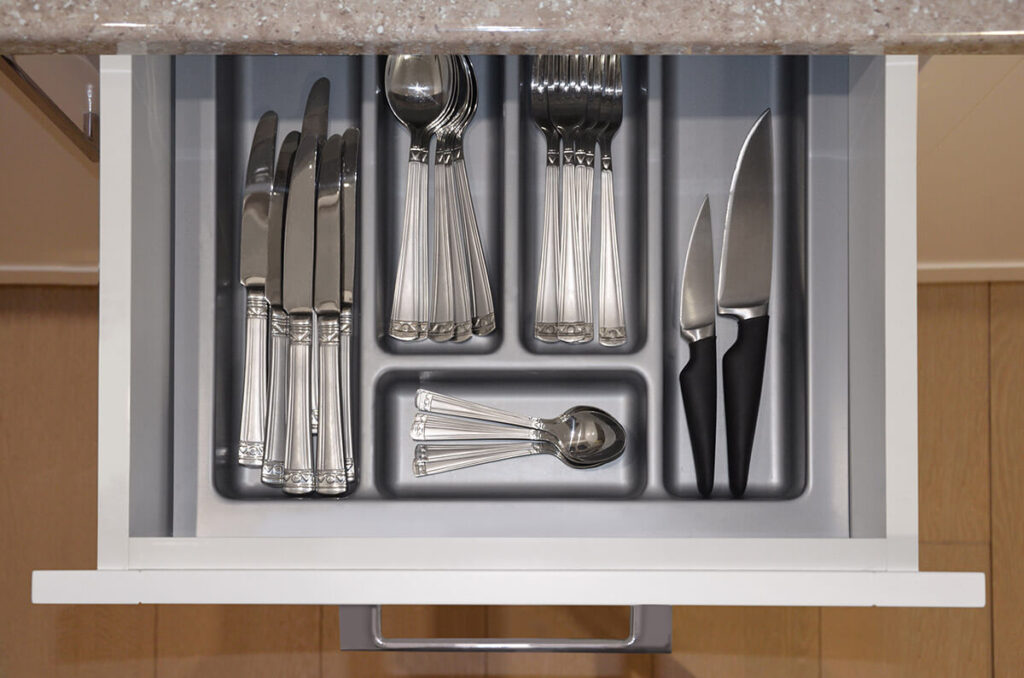Moving to Germany will bring you many exciting and new things. You should expect a high quality of life and living costs that won’t make a dent in your savings. Before you move, get familiar with all the documents needed for a visa, permanent residence, or documents that are required if you are taking your pet with you.


When you decide where to live overseas, consider taking some language classes and learning a few phrases – they will help you fit in faster. As a bonus, mastering the language will help you with career advancement later on.
Don’t forget the biggest benefit of relocating abroad: The Land of Poets and Thinkers has one of the best education systems and affordable healthcare. That’s why you should research cities and find the one that fits all of your needs.
What Documents Do You Need for Moving to Germany from the USA
Choose a trustworthy moving company to provide you with moving services for your belongings while you think about the documents you need when relocating internationally.
As an American, you have to apply for a Standard Residence Permit. This will be easy enough if you have a job lined up. Since you can stay in the country for 90 days without a visa, you should use that time and book an appointment at the immigration office.
Gather all the documents needed:
- Application form
- A valid passport
- Two photos
- Confirmation that you listed your new address with the authorities
- A statement that shows you are financially stable
- Health insurance
- Proof of payment for short and longer-stay visas
You can do all of this while you are in the USA as well, but the process will be slower and more difficult. Once you get a visa, you can renew it every year for five years when you can apply for Permanent Residence.
Getting German Citizenship
Obtaining permanent residence does not automatically mean you get to call yourself a citizen. But when you go through the naturalization process, you will be able to vote, move freely, have the right to become a civil servant, and many other things.
To be able to become a German citizen, you will have to:
- Pass a citizenship test
- Renounce previous citizenship, in this case, USA citizenship
- You should be without a criminal record
- You should be financially stable
- Speak the official language of the country
- Live in the country on residence permit for eight years
You can also become a citizen through marriage, but you have to be married for at least two years and live in the country for at least three years. If you have one parent that is German, you can get citizenship by descent.
Documents You Need When You Are Bringing Pets to Germany
Are you considering relocating internationally with a pet? There are some ground rules you have to follow when it comes to importing animals like dogs, cats, and ferrets. Firstly, they have to be microchipped and certified that they are rabies-free. Remember that Europeans, in general, are strict about the behavior of your furry friends. Still, after relocating your pet, they should be able to travel on buses, trains, even visit a restaurant with you without a fuss, as long as they behave well.


Residence Permit and Finding a Home
When you are relocating to The Land of Poets and Thinkers, you should remember that obtaining a standard residence permit means that you can later apply for German citizenship. It is granted if:
- You are working in the state
- Attending training courses
- If you are a former citizen who wants to return home
There are also settlement permits similar to the American Green Card.
When you finish your paperwork, it is time to find and move to a new home. Have you thought about renting or buying a new place? The cost of housing will vary depending on where you choose to live, and you don’t want to overspend when you move out for the first time.
You should consider talking to a real estate agent to help you find the best accommodation. Just be aware that there are many differences between renting or buying a house in the States and Germany. You will have to use a notary and pay a broker’s fee, which varies depending on the area.
Staying in Berlin
Are you still thinking about which city is right for you? If you choose Berlin, you won’t be disappointed. Let your movers worry about packing your clothes while you research your new home.
A third of the residents in Berlin are expats. The place is attractive for many, with its low cost of living, creative vibe, and vivid nightlife. Here you can even postpone learning the language since it is an international city that has many companies and establishments with English-speaking employees.
Don’t get surprised by the openness of this place. Germans tend to dress and act more freely here than in other parts of the country.
Cities You Can Move To
Moving to Germany means you get to choose to stay in one of its many beautiful cities. So, you should probably find the one that suits your needs perfectly. If you are not up to living in Berlin, you should consider:
- Munich might not be one of the wealthiest cities in the world, but it has the highest quality of life in the country. With its green spaces and parks, it is a perfect place if you are relocating your family overseas or if you are an outdoors enthusiast.
- Hamburg is the pearl of the North. It offers a coastal vibe, and you will have the opportunity to gaze at and admire the biggest port in the country.
- Frankfurt is a place for you if you are seeking a job. Most banks have headquarters here, so if you are in the financial sector, starting a career would not be hard.
- Stuttgart is home to Mercedes and Porsche, but it is more than just a city of cars. It is also an intellectual center of the South West.
- Cologne is the city of media, so if you are seeking employment in this field, that is where you should go. It is a very clean and safe city that gives you a variety of entertainment options throughout the year.


Cost of Living
Balancing finances when you are relocating abroad is something you have to consider seriously. You will want to get familiar with the amount of money needed to live in another country. Notice that the cost of living in The Land of Poets and Thinkers is reasonable compared to the other European countries.
The standard of living varies throughout the country, depending on where you live. Big cities tend to be more expensive than smaller towns. Also, how much money you will require is based on your lifestyle.
Get Your German Utilities Set Up
Before you relocate, remember that it takes a little bit longer to set up your phone and internet in Germany than it would take in the USA.
But don’t worry, you can get a TV, internet, and phone in one bundle. If you want specific channels like CNN, BBC, or any other in English, you will have to pay extra. Get ready to pay a radio-TV-internet fee known as Rundfunkbeitrag that everybody has to pay, whether you have cable or satellite.
Before you undergo the relocation process, be aware that canceling subscriptions or sales is a bit complicated. You can’t just stop paying and expect to have a subscription revoked. The laws favor the provider over the subscriber, so you should always read the fine print on a contract.


Healthcare and Education
This is the country that has a universal healthcare system. This means everyone can have treatment if there is something wrong, not only Germans. But if you want to live here, you will have to get health insurance. It can be either as part of the public health system or insurance from a private company.
If you are thinking about relocating for college or education for your kids, remember that universities here are free. And the fact that Germany has 23 universities in the world’s top 200 is just another proof of the quality of its educational system.
Doctors and Prescription Meds
When relocating internationally, bring with you a 90-day supply of prescriptions you have for you or your family because pharmacies won’t fill the US or Canadian prescriptions without getting them converted to a German version. As soon as you settle down, find a local physician that will prescribe you the meds you need.


Transportation
Are you thinking about shipping your car overseas? Depending on where you choose to live and where you find work, you might use it for commuting.
But if you want to take advantage of public transportation, the country can offer you a top-quality one. Germans in big cities use buses, trams, and the subway to get where they want.
So, if you decide to get a monthly pass for public transportation, you won’t be making a mistake.
Biking
Living in the country will help you embrace your inner cycler. Many cities have bike lanes that can be found everywhere. If you decided to hire professional packing services, don’t forget to get your bike packed. You will need it. Not only is it a healthy option, but it is also an eco-friendly one. So you will be improving your health while being conscious of the environment.


Looking for a Job
Are you wondering how to find a new job after the relocation if you haven’t already found one? The country has a competitive job market, and finding work can be challenging if you don’t speak German.
When you are searching for work, remember that some of the most demanded professions are in the science and engineering departments. Also, jobs that are in high demand are programmer and developer positions, healthcare workers, and IT analysts.
When you find a job, you will have to adapt to different working hours. Remember that people here work for 1,363 hours per year, 400 hours less than workers in the USA on average.


You Should Know German to Understand the Culture Better
If you want to get familiar with the culture of one nation, what better way to start than learning a new language? A European Commission survey found that 58% of people speak English, but that still means that a large portion doesn’t.
So, if you want to make friends abroad, you should sign up for language lessons way before you put your things into storage or prepare them for the relocation. Start small, with some common phrases, and work from there. Remember, knowing the language will help you not only to fit in but to advance in your career, as well.


Other Essential Things You Need to Know About Germany
Knowing that the country has over 2100 castles and that it is home to one of the largest train stations in Europe can be your icebreaker in a conversation. But many things make life here exciting and worth staying in.
Introduce yourself to expat communities and learn about all the ways you can adapt and become a local.
Crime Rates
Are you looking for a safe place for you and your family? Crime rates in the Land of Poets and Thinkers are at their lowest level since 1992, and they keep decreasing. Still, one of the biggest problems is theft, but police have been fighting it lately, and fewer vehicles and bikes get stolen. Pickpocketing rates also went down considerably.
Don’t Be Hateful
If judging by history, you might think that this is a country of extreme views, but you would be wrong. Due to the events from recent history, flags of extremist ideologies like Nazi and ISIS are banned. Whoever displays them can be punished with up to three years in prison.
Also, since 2006, the country has had a federal law that bans all kinds of discrimination.
Food and Drinks
When you are immersing in one culture, getting familiar with its cuisine is an important step. If you move here, you will get to taste some of the best beers in Europe, but also sausages and schnitzel. And don’t worry if you are vegetarian, you will be able to get a taste of some of the best potatoes and cheese.
It Is Good for Your Family
Thinking about your family and what’s best for them in the process of relocation is entirely normal. You should know that the country is great if you are relocating with kids. Not only due to good schools and affordable healthcare but because of the many parks and other recreational activities you can participate in.





